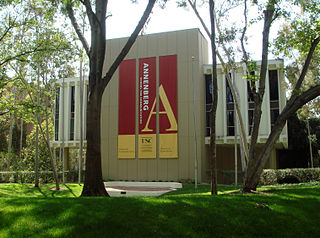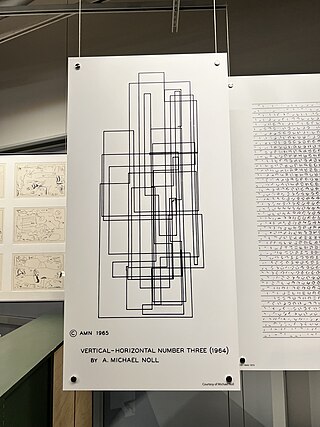Related Research Articles

Manuel Castells Oliván is a Spanish sociologist. He is well known for his authorship of a trilogy of works, entitled The Information Age: Economy, Society and Culture. He is a scholar of the information society, communication and globalization.
Everett M. "Ev" Rogers was an American communication theorist and sociologist, who originated the diffusion of innovations theory and introduced the term early adopter. He was distinguished professor emeritus in the department of communication and journalism at the University of New Mexico.

William H. Dutton is former Director of the Oxford Internet Institute, Professor of Internet Studies, University of Oxford, and Fellow of Balliol College. He also has a chair in Michigan State University's Department of Media and Information, where he is Quello Professor of Media and Information Policy. He was previously a Professor in the Annenberg School for Communication at the University of Southern California, which he joined in 1980, where he was elected President of the Faculty.

George Gerbner was a professor of communication and the founder of cultivation theory. He taught at Temple University, Villanova University, and the University of Pennsylvania.

The USC Annenberg School for Communication and Journalism comprises a School of Communication and a School of Journalism at the University of Southern California (USC). Starting July 2017, the school's Dean is Willow Bay, succeeding Ernest J. Wilson III. The graduate program in Communication is consistently ranked first according to the QS World University Rankings.

The Annenberg School for Communication is the communication school at the University of Pennsylvania. The school was established in 1958 by Wharton School alum Walter Annenberg as the Annenberg School of Communications. The name was changed to its current title in 1990.

A. Michael Noll is an American engineer, and professor emeritus at the Annenberg School for Communication and Journalism at the University of Southern California. He served as dean of the Annenberg School from 1992 to 1994. He was a very early pioneer in digital computer art and 3D animation and tactile communication.
Dallas Walker Smythe was a political activist and researcher who contributed to a political economy of communications. He believed that research should be used to develop knowledge that could be applied to policies in support of public interest and the disenfranchised in the face of private capital. He focused his research on mass media and telecommunications. Some of his main ideas included the "invisible triangle", and the "audience commodity". Much of his effort was focused on differentiating between Administrative and Critical Communications research.
James Renwick Taylor, sometimes known as Jim Taylor, was a Canadian academic and Professor Emeritus at the Department of Communication of the Université de Montréal, which he founded with Annie Méar and André H. Caron Ed.D in the early 1970s.
D. Lawrence Kincaid is an American communication researcher who originated the convergence theory of communication. He was a senior advisor for the Research and Evaluation Division of the Center for Communication Programs and an associate scientist in the Faculty of Social and Behavioral Sciences at the Johns Hopkins Bloomberg School of Public Health.
Klaus Krippendorff was a communication scholar, social science methodologist, and cyberneticist. and was the Gregory Bateson professor for Cybernetics, Language, and Culture at the University of Pennsylvania's Annenberg School for Communication. He wrote an influential textbook on content analysis and is the creator of the widely used and eponymous measure of interrater reliability, Krippendorff's alpha. In 1984–1985, he served as the president of the International Communication Association, one of the two largest professional associations for scholars of communication.
Joseph Woelfel is an American sociologist. Born in Buffalo, New York, Dr. Woelfel is an Emeritus Professor in the Department of Communication at the University at Buffalo, The State University of New York.
The Center for Global Communication Studies (CGCS) is a research center located within the Annenberg School for Communication at the University of Pennsylvania. CGCS serves as a research hub for students and scholars worldwide studying comparative communication studies, media law, and media policy. The center also provides consulting and advisory assistance to academic centers, non-governmental organizations, regulators, lawyers, and governments throughout the world.
Stewart M. Hoover is a Professor of Media Studies and Professor Adjoint of Religious Studies at the University of Colorado at Boulder. He is the founder and director of the Center for Media, Religion and Culture. His research interest centers on media audience and reception studies rooted in cultural studies, anthropology and qualitative sociology. He is known for his work on media and religion, particularly in the phenomenon of televangelism, and later in religion journalism. His most recent work involves household-level studies of media audience practices of meaning-making and identity. Supported by a series of grants from the Lilly Endowment and the Ford Foundation, this work investigates the extent to which the media sphere as a whole and the various media which comprise it constitute a central site of meaning practice in contemporary domestic and global life. Through the center he directs, he has also become influential in scholarly discourses about the public understanding and role of religion globally and the ways those are rooted in its mediation.
Ronald L. Jackson II is an American academic and author. He is Past President of the National Communication Association and a professor of communication, culture, and media, and a former dean of the McMicken College of Arts and Sciences at the University of Cincinnati.
Peter Monge is professor of communication in the Annenberg School of Communication and Journalism and professor of management and organization in the Marshall School of Business at the University of Southern California. Monge studies communication and knowledge networks, ecological theories, and organizational change processes.
John L. Jackson Jr. is an American anthropologist, filmmaker, author, and university administrator. He is currently the provost and Richard Perry University Professor at the University of Pennsylvania. Jackson earned his B.A. from Howard University and his Ph.D. in Anthropology from Columbia University. He served as a junior fellow at the Harvard University Society of Fellows before joining the Cultural Anthropology faculty at Duke University.
Arvind Singhal is an Indian-born American social scientist and academician. His academic research has focused on diffusion of innovations, the positive deviance approach, organizing for social change, the entertainment-education strategy, and liberating interactional structures. He currently holds the positions of Samuel Shirley and Edna Holt Marston Endowed Professor of Communication and Director of the Social Justice Initiative in Department of Communication at University of Texas at El Paso since 2007, William J. Clinton Distinguished Fellow at the Clinton School of Public Service since 2010 and Distinguished Professor 2 in the Faculty of Business Administration, Inland Norway University of Applied Sciences, since 2015.
Mary Angela Bock is a journalist and professor of journalism. She is an associate professor of journalism at University of Texas at Austin in the School of Media and Journalism with an expertise in visual communication, citizen journalism and representation.
Michael X. Delli Carpini is a distinguished American scholar. He is the Oscar H. Gandy Emeritus Professor of Communication and Democracy at the University of Pennsylvania’s Annenberg School for Communication. He served as the Walter H. Annenberg Dean at University of Pennsylvania from 2003 to 2018, returning to the faculty in 2019 before moving to emeritus status in 2022. During his time at Penn, he also held a secondary appointment in the Department of Political Science.
References
- ↑ Surveillance Studies Network. "Awards & Prizes". Surveillance Studies Network. Retrieved May 11, 2021.